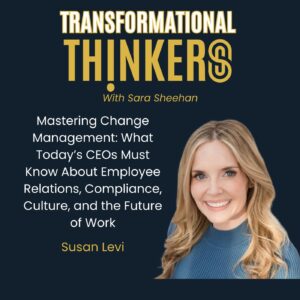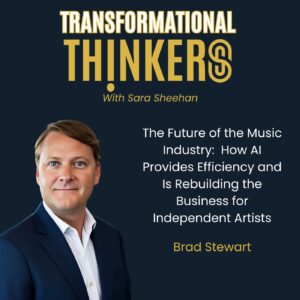Sara Sheehan’s guest in this episode is Jeremy Fischbach, CEO of Happy, a mental health company providing frictionless, non-clinical support for people in demanding environments. Happy supports large organizations like hospitals and the Department of Defense and operates by eliminating barriers to accessing emotional support. Jeremy drew on his background in psychology and law, as well as his personal difficulties accessing mental health support, to develop Happy. He tells Sara exactly how his innovative approach prioritizes accessibility and impact.
Jeremy’s personal struggles and dissatisfaction with the time-consuming and inaccessible nature of mental health support led him to envision a system where emotional support was readily available and proactively offered. He focused on creating a frictionless system with a platform where users find emotional support without facing complicated processes. Sara explores how Happy’s model addresses a growing need among people who feel disconnected from support.
Sara and Jeremy discuss Happy’s high adoption rates and clinical-level effectiveness, the real-time emotional support offered, and how it enhances employee engagement. Despite struggles with disrupting traditional and digital mental health systems, Jeremy highlights the importance of continuing to challenge old models and assumptions. Happy’s success highlights the need for compassionate, accessible, and innovative mental health solutions that make user experience the priority.
About Jeremy Fischbach:
Jeremy Fischbach is the Founder of Happy, whose mission is to create a more supportive culture by expanding access to the essential ingredient of mental health and by teaching and inspiring people to better emotionally support each other. Prior to Happy, Jeremy was the CEO of Myne, which built interactive educational and sports analytics software that leveraged users’ psychographic data to improve performance. Jeremy has a psychology degree from Princeton and a J.D. from NYU.
—
Contact Sara Sheehan | Sara Sheehan Consulting:
Jeremy Fischbach | Happy
- Website: FrictionlessMentalHealth.com
- Jeremy Fischbach on LinkedIn
- Email Jeremy
Hosted by Simplecast, an AdsWizz company. See pcm.adswizz.com for information about our collection and use of personal data for advertising.


